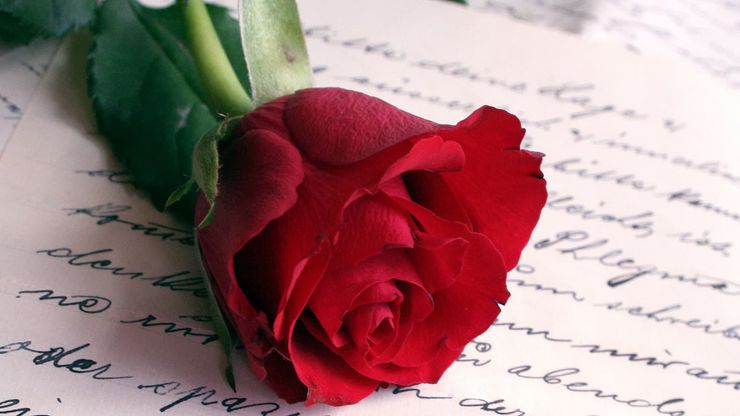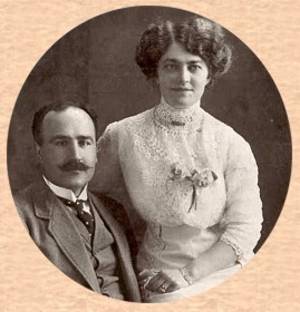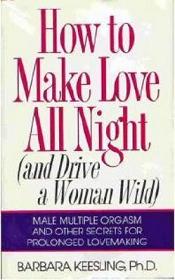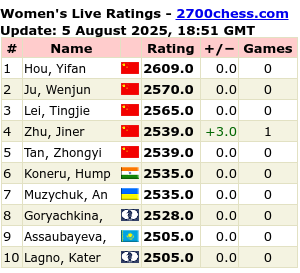

All links in this post will open in a new window.
I will always like the music of Queen..this song is called..Las Palabras de Amor. Enjoy!
“I love you without knowing how, or when, or from where. I love you straightfowardingly, without complexeties or pride. So I love you because i know no other way than this…” Pablo Neruda
“A kiss is something you cannot give without taking and cannot take without giving.”
“Journeys end in lovers meeting, Every wise man’s son doth know”. William Shakespeare in Twelfth Night (II, iii, 44-45)
“Love is but the discovery of ourselves in others, and the delight in the recognition.” Alexander Smith
Enjoy this song by South African singer…Steve Hofmeyr…”You got me”…

And this South African Golden Oldie! Ge Korsten with “Liefling” and liefling means..”darling”…
Enjoy this song…”Fields of Gold” by Eva Cassidy
Enjoy this song by Ilse de Lange: “What does your heart say now?”
Slide down for the article…”Romance in Chess”…
Listen to the poem on this audio file too…by Robert Burns….source: http://www.chivalry.com/cantaria/lyrics/redredrose.html
Notes: According to “Scottish Songs Illustrated,” this song is a Robert Burns rewrite of an older street ballad, which is said to have been written by a Lieutenant Henches, as a farewell to his betrothed.
0, my love is like a red, red rose,
that’s newly sprung in June.
0, my love is like a melody,
that’s sweetly play’d in tune.
As fair thou art, my bonnie lass,
so deep in love am I,
And I will love thee still, my dear,
till a’ the seas gang dry.
Till a’ the seas gang dry, my dear,
and the rocks melt wi’ the sun!
And I will love thee still, my dear,
while the sands of life shall run.
And fare the weel, my only love!
And fare the well awhile!
And I will come again, my love.
Tho it were ten thousand mile!

Read on THIS LINK too the poem by Elizabeth Barret Browning…”How do I love thee”…enjoy! One of my favourites!
”How do I love thee? Let me count the ways…”
by Elizabeth Barrett Browning (1806-1861)
How do I love thee? Let me count the ways.
I love thee to the depth and breadth and height
My soul can reach, when feeling out of sight
For the ends of Being and ideal Grace.
I love thee to the level of everyday’s
Most quiet need, by sun and candle-light.
I love thee freely, as men strive for Right;
I love thee purely, as they turn from Praise.
I love thee with a passion put to use
In my old griefs, and with my childhood’s faith.
I love thee with a love I seemed to lose
With my lost saints, — I love thee with the breath,
Smiles, tears, of all my life! — and, if God choose,
I shall but love thee better after death.
Today I’m in a mood to blog about love… What is love? What is your view, we discussed this at work….and we all agreed to the following conclusions…..Is it a sensation..a shared feeling between two people… ..based on physical and emotional attraction.. spontaneously generates when the right person appears. And of course also, it can spontaneously degenerate when the magic “just isn’t there” anymore. You fall in love, and you can fall out of it.
Love is the attachment that results from deeply appreciating another’s goodness. What we value most in ourselves, we must value most in others. God created us to see ourselves as good ….hence our need to either rationalize or regret our wrongdoings….In the Bible He said…after creating us humans… “and that was good”… So, too, we seek goodness in others. Nice looks, an engaging personality, intelligence, and talent may attract you, but goodness is what moves you to love.LOVE IS A CHOICE. Love is active. You can create it. Just focus on the good in another person …..and everyone has some!! If you can do this easily, you’ll love easily.
Love is care, demontrating active concern for the recipient’s life. Love is responsibility. Love is respect, the ability to see a person as he/she is, to be aware of his/her unique individuality. A big part of love is putting another person’s happiness ahead of your own. If you have to “prove” your love to someone, I don’t believe that he/she loves you the way you might think he/she does.When you love another person you don’t ask them to sacrifice a part of themselves in the name of that love. Love is not about jealousy. It is not about conflict. It is not about testing. Love is not about spitefulness. How do you show love to other people? Nobody expect you to “love” all people the way you love your husband/wife, but it is expected from us to “love your neighbour as you love yourself”.
Enjoy the poem: Love Song by T S Eliot
Communication, Communication, and Communication……..on THIS LINK you can read how important communication in a relationship between a married couple is.The link will open in a new window.
T S Eliot
On THIS LINK you can read his extract “The Game of Chess”.
Click HEREto read more love poems on my blog.
And…on THIS LINK on my blog….you can read the poem of E A Poe…Annabel Lee…a beautiful love poem.
Ben Jonson
T H E F O R E S T .
IX. — SONG. — TO CELIA.
Drink to me, only with thine eyes,
And I will pledge with mine ;
Or leave a kiss but in the cup,
And I’ll not look for wine.
The thirst, that from the soul doth rise,
Doth ask a drink divine :
But might I of Jove’s nectar sup,
I would not change for thine.
I sent thee late a rosy wreath,
Not so much honoring thee,
As giving it a hope, that there
It could not wither’d be.
But thou thereon didst only breathe,
And sent’st it back to me :
Since when it grows, and smells, I swear,
Not of itself, but thee.
Love Song
I lie here thinking of you:
the stain of love
is upon the world!
Yellow, yellow, yellow
it eats into the leaves,
smears with saffron
horned branched the lean
heavily
against a smooth purple sky!
There is no light
only a honey-thick stain
that drips from leaf to leaf
and limb to limb
spoiling the colors
of the whole world-
you far off there under
the wine-red selvage of the west!
~~~William Carlos Williams
The Love Song of J. Alfred Prufrock
LET us go then, you and I,
When the evening is spread out against the sky
Like a patient etherised upon a table;
Let us go, through certain half-deserted streets,
The muttering retreats 5
Of restless nights in one-night cheap hotels
And sawdust restaurants with oyster-shells:
Streets that follow like a tedious argument
Of insidious intent
To lead you to an overwhelming question …
Oh, do not ask, “What is it?”
Let us go and make our visit
In the room the women come and go
Talking of Michelangelo
The yellow fog that rubs its back upon the window-panes,
The yellow smoke that rubs its muzzle on the window-panes
Licked its tongue into the corners of the evening,
Lingered upon the pools that stand in drains,
Let fall upon its back the soot that falls from chimneys,
Slipped by the terrace, made a sudden leap,
And seeing that it was a soft October night,
Curled once about the house, and fell asleep.
And indeed there will be time
For the yellow smoke that slides along the street,
Rubbing its back upon the window-panes;
There will be time, there will be time
To prepare a face to meet the faces that you meet;
There will be time to murder and create,
And time for all the works and days of hands
That lift and drop a question on your plate;
Time for you and time for me,
And time yet for a hundred indecisions,
And for a hundred visions and revisions,
Before the taking of a toast and tea.
In the room the women come and go
Talking of Michelangelo
And indeed there will be time
To wonder, “Do I dare?” and, “Do I dare?”
Time to turn back and descend the stair,
With a bald spot in the middle of my hair—
[They will say: “How his hair is growing thin!”]
My morning coat, my collar mounting firmly to the chin,
My necktie rich and modest, but asserted by a simple pin—
[They will say: “But how his arms and legs are thin!”]
Do I dare
Disturb the universe?
In a minute there is time
For decisions and revisions which a minute will reverse.
For I have known them all already, known them all:—
Have known the evenings, mornings, afternoons,
I have measured out my life with coffee spoons;
I know the voices dying with a dying fall
Beneath the music from a farther room.
So how should I presume?
And I have known the eyes already, known them all—
The eyes that fix you in a formulated phrase,
And when I am formulated, sprawling on a pin,
When I am pinned and wriggling on the wall,
Then how should I begin
To spit out all the butt-ends of my days and ways?
And how should I presume?
And I have known the arms already, known them all—
Arms that are braceleted and white and bare
[But in the lamplight, downed with light brown hair!]
It is perfume from a dress
That makes me so digress?
Arms that lie along a table, or wrap about a shawl.
And should I then presume?
And how should I begin?
. . . . .
Shall I say, I have gone at dusk through narrow streets
And watched the smoke that rises from the pipes
Of lonely men in shirt-sleeves, leaning out of windows?
I should have been a pair of ragged claws
Scuttling across the floors of silent seas.
. . . . .
And the afternoon, the evening, sleeps so peacefully!
Smoothed by long fingers,
Asleep … tired … or it malingers,
Stretched on the floor, here beside you and me.
Should I, after tea and cakes and ices,
Have the strength to force the moment to its crisis?
But though I have wept and fasted, wept and prayed,
Though I have seen my head [grown slightly bald] brought in upon a platter,
I am no prophet—and here’s no great matter;
I have seen the moment of my greatness flicker,
And I have seen the eternal Footman hold my coat, and snicker,
And in short, I was afraid.
And would it have been worth it, after all,
After the cups, the marmalade, the tea,
Among the porcelain, among some talk of you and me,
Would it have been worth while,
To have bitten off the matter with a smile,
To have squeezed the universe into a ball
To roll it toward some overwhelming question,
To say: “I am Lazarus, come from the dead,
Come back to tell you all, I shall tell you all”—
If one, settling a pillow by her head,
Should say: “That is not what I meant at all.
That is not it, at all.”
And would it have been worth it, after all,
Would it have been worth while,
After the sunsets and the dooryards and the sprinkled streets,
After the novels, after the teacups, after the skirts that trail along the floor—
And this, and so much more?—
It is impossible to say just what I mean!
But as if a magic lantern threw the nerves in patterns on a screen:
Would it have been worth while
If one, settling a pillow or throwing off a shawl,
And turning toward the window, should say:
“That is not it at all,
That is not what I meant, at all.”
. . . . .
No! I am not Prince Hamlet, nor was meant to be;
Am an attendant lord, one that will do
To swell a progress, start a scene or two,
Advise the prince; no doubt, an easy tool,
Deferential, glad to be of use,
Politic, cautious, and meticulous;
Full of high sentence, but a bit obtuse;
At times, indeed, almost ridiculous—
Almost, at times, the Fool.
I grow old … I grow old …
I shall wear the bottoms of my trousers rolled.
Shall I part my hair behind? Do I dare to eat a peach?
I shall wear white flannel trousers, and walk upon the beach.
I have heard the mermaids singing, each to each.
I do not think that they will sing to me.
I have seen them riding seaward on the waves
Combing the white hair of the waves blown back
When the wind blows the water white and black.
We have lingered in the chambers of the sea
By sea-girls wreathed with seaweed red and brown
Till human voices wake us, and we drown.
Song to Celia
by Ben Jonson
And I will pledge with mine;
Or leave a kisse but in the cup,
And Ile not looke for wine.
The thirst, that from the soule doth rise,
Doth aske a drinke divine:
But might I of Jove’s Nectar sup,
I would not change for thine.
I sent thee, late, a rosie wreath,
Not so much honoring thee,
As giving it a hope, that there
It could not withered bee.
But thou thereon did’st onely breath,
And sent’st it back to mee:
Since when it growes, and smells, I sweare,
Not of it selfe, but thee.
Read about Ben Jonson HERE …
Robert Browning
A Woman’s Last Word
Let’s contend no more, Love,
Strive nor weep:
All be as before, Love,
—Only sleep!
What so wild as words are?
I and thou
In debate, as birds are,
Hawk on bough!
See the creature stalking
While we speak!
Hush and hide the talking,
Cheek on cheek!
What so false as truth is,
False to thee?
Where the serpent’s tooth is
Shun the tree—
Where the apple reddens
Never pry—
Lest we lose our Edens,
Eve and I.
Be a god and hold me
With a charm!
Be a man and fold me
With thine arm!
Teach me, only teach, Love
As I ought
I will speak thy speech, Love,
Think thy thought—
Meet, if thou require it,
Both demands,
Laying flesh and spirit
In thy hands.
That shall be to-morrow
Not to-night:
I must bury sorrow
Out of sight:
Must a little weep, Love,
(Foolish me!)
And so fall asleep, Love,
Loved by thee.
–Robert Browning
Next I have a National Poet of South Africa…A G Visser. He’s written some beautiful love poems in Afrikaans!
A.G. Visser en Lettie Conradie.
Hy trou in 1913 met Lettie, oorlede in 1920,
en in 1927 met Marie de Villiers.
Read more about A G Visser here on this link.
Liefdes gedigte: A G Visser
Misère
(Triolet)
The light that lies
In women’s eyes
Just… lies and lies!
In die eerste instansie,
wie sou nou kon dink,
Dat die liefde iets is
so beroerd ongestadig?
Dat die hand wat uit gulde
bokale laat drink,
In die eerste instansie,
wie sou nou kon dink
Dat dit eendag nog edik
en gal weer sal skink,
Ongevoelig meedoënloos,
wreed, ongenadig?
In die eerste instansie,
wie sou nou kon dink
Dat die liefde iets is
So beroerd ongestandig!

http://www.gedichtenbundel.be/testliefdefoto1Eheu fugaces…
Si jeunesse savait.
Si vitesse avait.
Onthou jy nog, Anita lief,
Die aand daar by die strand,
My hart vir jou ’n ope brief,
Jou handjie in my hand?
Die maanlig het die see gesoen,
Die see … die strand, nog heet –
En ons … wat kon ons anders doen?
Kan ons dit ooit vergeet?
Cherie Yvonne, het jy vergeet
Die les in Afrikaans?
Die beste taal het ons geweet,
Die tyd in ou la France.
En aan my hemel onbewolk
Was jy die goue son;
“Toujours l’Amour” was onse tolk;
Onthou jy nog, Yvonne?
Mooi Gretchen, kan jy nog onthou
Ons tyd van soete min?
Die Neckar met sy waters blou,
Jou ogies blou daarin?
Die donkergroene dennewoud
Was liefdes-heiligdom –
Alt Heidelberg, die jeug van goud,
En jy – sal nooit weer kom!
En, bonnie Jean, onthou jy nog
Die eiland van die Swaan?
Ben Lomond en die donker loch
By heldere somermaan?
Aan rosebanke trek ons twee
(Was dit ’n droom – wie weet?)
Wit swane oor die lewensee –
Kan ek dit ooit vergeet?
Maar eenmaal in die lewe kom
Die liefde weergaloos;
En eenmaal in die gaarde blom
Volmaak ’n wonderroos.
Verwelk, helaas, my tuin se prag –
Weg met die donker stroom –
Die wind deurwaai my hof by nag
En vind my met my droom.
O lippe wat nog lag en lonk!
O harte wat nog klop!
Steeds doem gestaltes ewig-jonk
Uit die verlede op.
“Eheu fugaces anni …” sing
Gedagtes wat nou skroei;
Op velde van herinnering
Pers amarante bloei!
Ballade van die roos
’n Ou Spaanse gesegde noem die volgende
drie stadieë in die lewe van ‘n roos:
In die more: rosa pallida.
In die middag: rosa perfecta.
In die aand: rosa incarnada
Waarheen ook my oë mag staar
En waar ook my voete mag gaan,
Geduriglik droom ek van haar;
Haar beeltenis lief lag my aan,
Ek sien – as die sterrelig taan –
’n Roosknop wat stadig ontvou: –
– My noointjie van ver-hier-vandaan –
O „Pallida Rosa”, vir jou!
O blomkelk, met skoonheid belaan,
Ek smag op die middag-uur lou
My noointjie van ver-hier-vandaan
O „Rosa Perfecta”, na jou!
Ek ken jou nog nie – dit is waar –
Maar êrens moet jy tog bestaan;
Die aandson gloei rooi op die blaar
En ’k voel jy’s g’n ydele waan,
Want rooi sprei die liefde haar vaan!
En donker die oë getrou
– My noointjie van ver-hier-vandaan –
O Roos „Incarnada” – van jou!
Andries Gerhardus Visser (1878 – 1929)
Image: http://users.telenet.be/
This first video is the song “Words” by F R David
Princesse Lointaine
Was jy ’n rosebloesem
En ek die roos se geur,
Hoe heerlik deur die lewe
Steeds rondom jou te swewe.
Beswymend aan jou boesem,
Betower deur jou kleur.
Was jy ’n rosebloesem
En ek die roos se geur.
Was jy ’n lied se woorde
En ek die melodie.
Hoe sou die dag verheerlik
Jou skoonheid so begeerlik;
Die nag tril van akkoorde
En soetste harmonie.
Was jy ’n lied se woorde,
En ek die melodie.
Was jy die hoogste kranse,
En ek die sonnegloed.
Jou wange sou dan verwe
En op jou lippe sterwe
My eerste moreglanse
En laaste awend-groet;
Was jy die hoogste kranse
En ek die sonnegloed
Maar jy ’s Prinses van Verre
En ek… ’n troebadoer;
Al gloei ook my gesange
Van liefde en verlange,
– Die vuurvlieg vir die sterre –
Wat my ten hemel voer;
Jy bly Prinses van Verre
En ek… ’n troebadoer.

Stille Rivierstroom….Nick Taylor
Die middagson helder en klaar
Sien neer van sy blou hemelbaan;
Die roos sal haar hart openbaar
Aan wie haar geheime verstaan.
Jou huis is waar jou hart is
My hart is leeg geween
Vandat sy verdwyn het
wandel ek oral alleen
Sing oor somer briese
Jou weemoed sleep weer oor
Saammet die lowerstruike
sing my ‘n hemelse koor
Chorus:
Liefde, Liefde’s ‘n stille rivierstroom
wat vloei deur ons woestynland
Droog die rivier weg
dan sal al die klein vissies sterf
Ek stap deur lee strate
Die echo’s maak my seer
My hart is soos my hande
soekend maar bly altyd leeg
Woestyne kan my nie keer nie
Ek baan deur storms my weg
Ek sal die rivier weer terugvind
voor hierdie klein vissie sterf
Chorus
ROMANCE IN CHESS?
Romance in chess? ‘What could possibly be less romantic than chess?’ you might be asking. After all, chess is a game of war based on logic, isn’t it? There is nothing romantic about war or logic.
Many players are familiar with the famous quote by Dr. Siegbert Tarrasch from the preface to his classic manual The Game of Chess : ‘Chess, like love, like music, has the power to make men happy’ (which politically correct writers of more recent times change to ‘the power to make people happy’). Less familiar is Tarrasch’s preceding sentence, ‘I have always a slight feeling of pity for the man who has no knowledge of chess, just as I would pity the man who has remained ignorant of love.’
Chess once served a social function of allowing young men and women to meet above the board. Echecs et Féodalité : Raoul de Cambrai (Chess and feudalism; from Culture et curiosités, see the link box in the upper right corner of this article) tells of a poem by Bertolai, a 10th century poet from Laon, France. The poem, about a war of succession in Northern France, references chess twice. In the second reference chess is used as an excuse by the daughter of the new overlord Guerri to woo the hero Bernier to her chambers. Her chamberlain, assigned the task of arranging the meeting, says to Bernier, ‘My young lord, you can be proud of yourself, since the daughter of Guerri, the most noble woman from here to the south of France, asks that you join her in her apartments, to play chess. You should comply, but don’t play chess.’
The significance of this might be lost in our age of instant gratification, but as recently as 100 years ago, chess still occasionally served as a means to a more romantic end.

This popular illustration by Clarence Frederick Underwood (American, 1871-1929), is often listed under various titles. Our favorite is Knight takes Queen. This theme is not as unique as you might think. One web site has a collection of more than 50 drawings and photos, all with the theme ‘Couples playing chess’ (see the link box again). The images invariably have titles like ‘The right move’, ‘The greatest game in the world’, or variations on the word mate : ‘Impending Mate’, ‘Check and mate’, etc. The word ‘checkmate’ even figured in at least one early valentine.

‘My little love do you remember,
Ere we grew so sadly wise,
When you and I played chess together,
Checkmated by each others eyes?’
Source: http://chess.about.com/library/weekly/aa05b12.htm
Wow, one chess player on the chess site tells me he’s busy reading this book! E..er…













